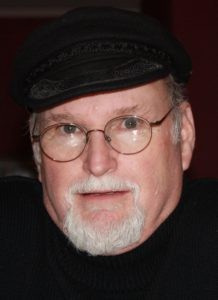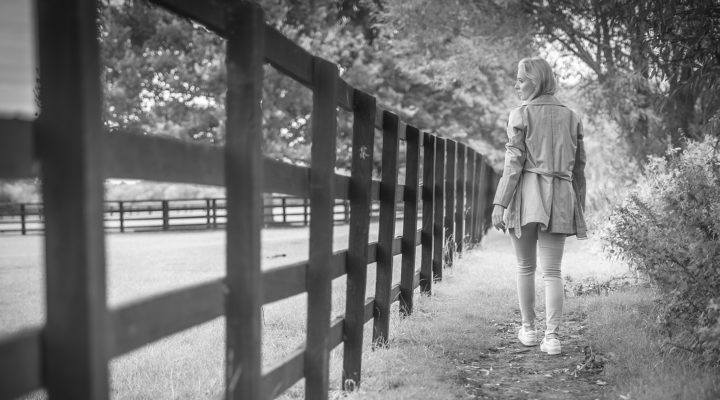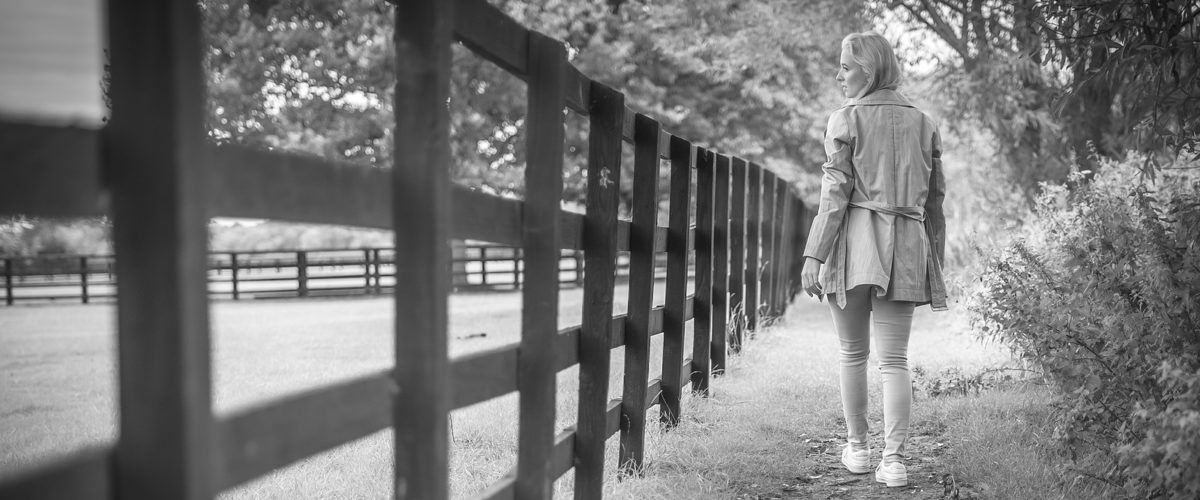In the counseling setting, I often tell my clients it takes a year to get a sense of the loss we have experienced. I compare it to a person who has purchased a piece of land and walked out the perimeter before he agreed to the purchase. He does that to become familiar with the land he is planning to purchase.
Grief is like that. It takes a year to walk out the perimeter of our loss. What happens in a year that is so important?

Michael Chancellor
Well, we walk out the days. We move through the holidays without our loved one. We pass the birthdays we celebrated with them. We note other special days that were a part of our family ritual. I remember when my dad was alive, he often invited us all out to his place for the Fourth of July. He would barbeque, but more than that, it was a time to get together. Thanksgiving and Christmas are the biggest ones because there is an empty seat at the table. An absence of gifts under the tree. An unspoken awareness that someone is missing. It is only then that we begin to see the scope and breadth of our loss.
I tell folks this because I know it is true— and because I know the temptation is to rush through grief whether by our own lack of comfort with grief or the lack of patience of others. We want to get it over with.
Grief will not be rushed.
I suggest to clients, also reminding myself, that after a year, when we have walked out the perimeter of our loss, then we set about to grieve.
I provide my clients with an outline of what grief is supposed to do. Few think about what this misery is supposed to accomplish, but there is a method in the sadness.
I borrow from Erich Lindemann in his research on the Cocoanut Grove disaster. Lindemann found grief really has four functions:
- First, it helps us separate from the person who has died. Just because someone has passed away does not mean all ties are cut. Quite the contrary. Some of the most troubled people I have worked with still hold on to the relationships even though the person has died. And some of the most difficult are those where connections are covert instead of overt. Covert means the connections are destructive and debilitating.
- Second, grief pushes us into a world where the person we lost is no longer present. We never want to minimize the power or influence of someone we have loved or hated and the place they may have in our lives. We have to adjust to a new world. The empty seat at the table must at some point be taken away. They are not here, nor will they return.
- Third, grief challenges us to move on with our lives. One of the saddest experiences I had as a pastor was going to a home for supper with a former pastor’s widow. This pastor had served the church, resigned and was on his way out of town when he died from a heart attack. I was not the pastor who followed him but the pastor who followed the pastor who followed him. So, Anna and I went to have supper at her home. She invited us in, but before we could eat, she showed us her husband’s study. It was just like he had stepped out and would return momentarily. She could not move on with her life. Her life had stopped when her husband died.
- Finally, grief helps us form new relationships. That is, we jump back into the pool of living again. We get out there, we engage others, we form new relationships, we start a new chapter in our lives.
Anna and I celebrated Thanksgiving this year without my mom. It wasn’t like there was an empty seat at the table. We were long past that. She was in a nursing home in San Angelo, but it was an unwritten rule that I would call and wish her a happy Thanksgiving. Most of the time, my older brother, Jim, and his wife, Linda, would either take her to lunch or bring her to the family gathering if it was their year. My brother and his wife were magnanimous in that they rotated with their married children every other Thanksgiving or Christmas. There was no expectation their children would spend every Thanksgiving and Christmas with them, rather they would rotate. Most often a Thanksgiving with Jim and Linda meant a Christmas with the in-laws. They were so open-hearted about that.
However, they never forgot to include Mom. If it was the family’s holiday, she was in attendance. If it was an “off” holiday, they would take her to lunch. They were awesome to Mom. So, living away, I had to make do with a phone call. Some holidays we could make it to San Angelo, but many we simply checked in by phone.
Years ago, we developed a habit of talking on Saturday morning at 8:30. There were a few Saturday mornings when we were out of pocket, but the call was made by Anna if we were driving, and if not, earlier in the week because we would be away.
“So Saturdays are a little more empty. The Christmas list is a little shorter.”
So Saturdays are a little more empty. The Christmas list is a little shorter. And Anna and I both are still adjusting to the reality of a world in which Mom is not present.
Mom had wanted a daughter but got three boys instead. She often told us she got her girls when we married. She loved her daughters-in-law and called them all her daughters-in-love. It was true. She forewarned us sons she would always take the side of her “girls,” and she did.
Just know that if your life is overshadowed with grief this holiday season, the sun will shine again. The joy will return. The wound of loss will heal, and you can move on to form new relationships. But take the first year to walk the perimeter.
Michael Chancellor served 33 years as pastor of four Baptist churches in Texas, seven years as a mental health manager in a maximum-security Texas prison and now is a therapist in private practice in Round Rock, Texas.
Related articles:
Four stones to support your grief this holiday season
Holidays 2020 may evoke a darker shade of grief and isolation, panelists say


